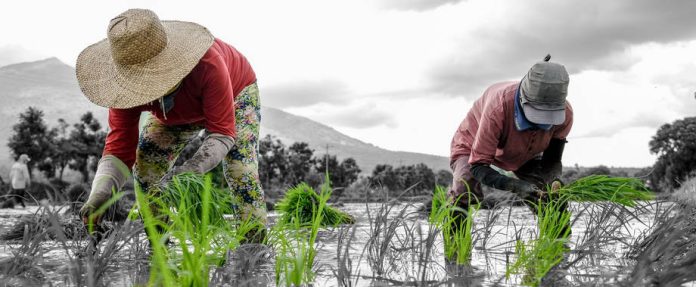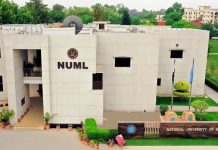By Asad Cheema
ISLAMABAD: The agriculture investment symposium was held here to bring together key stakeholders, including investors, policymakers, farmers, development partners, and researchers, to exchange ideas, knowledge, and experiences to drive investment in the agriculture sector.
The symposium was attended by more than 300 participants and provided a platform for matchmaking and exploring opportunities for private investors and financial institutions to invest in the agricultural sector.
Booths for B2B meetings were set up, which served as an avenue for investors to connect with agriculture companies to exchange knowledge and access available options related to technologies and bankable products. Several memorandum of understanding were either signed or pledged at the B2B meetings. Jointly organized by the Food and Agriculture Organization of the United Nations (FAO), International Finance Corporation (IFC), Asian Development Bank (ABD), and Federal and Provincial Boards of Investment (BOI), the symposium catalyzed investments, partnerships, and collaborations for sustainable and inclusive growth in the sector, leveraging digitalization while managing the adverse impacts of climate change.
Federal Minister for Planning Ahsan Iqbal urged private investors and financial and government institutions to collaborate and work together in the agriculture sector, which has a high potential for economic returns and poverty alleviation. Appreciating the efforts of FAO, he highlighted that the cluster-based development was part of the government’s Vision 2025 to maximize agriculture and termed this approach as a key to our future influenced by Michael Porter’s landmark work on “The Competitive Advantage of Nations.” FAO’s Investment Centre also works with private sector partners through financial institutions to attract greater and more responsible private agri-food investment, said Mohamed Manssouri, Director FAO Investment Centre.
“It acts as a bridge between Members and financing partners to scale up investment for greater impact at the country level.” Investment potential and economic benefits in eight agriculture commodities, such as apple, beef, chili, date, mango, onion, rice, and tomato, were presented to induce private investors. Likewise, the financing needs identified under the living Indus Initiative for the sustainability of irrigated agriculture were also shared. This approach of the country fits very well with the Hand in Hand (HIH) Initiative of FAO, which supports the transformation of agri-food systems to eradicate poverty (SDG1), end hunger and malnutrition (SDG2), and reduce inequalities (SDG10).
Other speakers at the inaugural session, including FAO Representative Florence Rolle, Khalid Gardezi, Additional Secretary, Ministry of National Food Security & Research, Zeeshan Sheikh, Country Manager, IFC, Mohammad Farooq, Joint Secretary, Ministry of Climate Change, Yasmin Siddiqi, Director ADB, and Aamer Irshad, Head of Program, emphasized the challenges faced by the agriculture sector and proposed various reforms, policy actions and identified investment potential for the sustainable management of the agriculture sector of Pakistan under high climatic risk vulnerability.
Two interactive panel discussions were also organized on the theme of the symposium where successful entrepreneurs shared their experiences for catalyzing investment and exploiting digital technologies to enhance agricultural competitiveness, facilitated by ADB and IFC.
Jamil Qureshi, Executive Director General, Board of Investment (BOI), Government of Pakistan, in his closing remarks shared the way forward while concluding the event.





